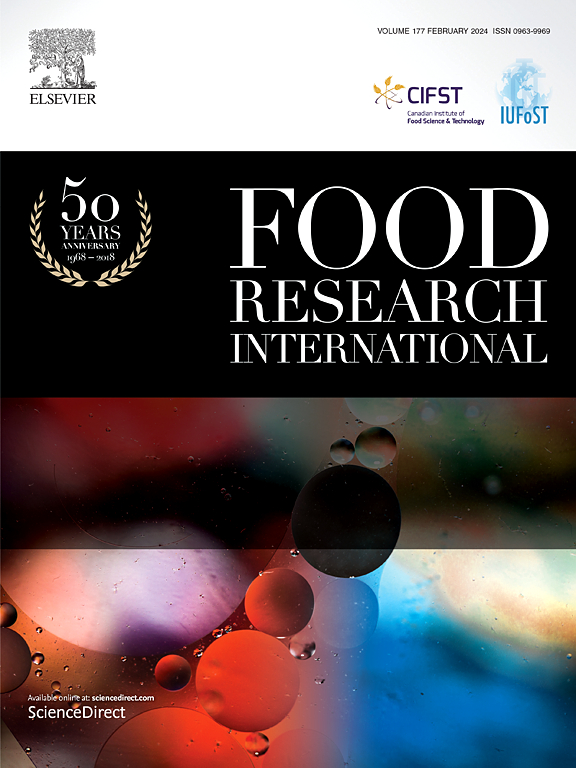Artificial intelligence-based multi-objective optimization in fruit and vegetable drying systems: A comprehensive review
IF 7
1区 农林科学
Q1 FOOD SCIENCE & TECHNOLOGY
引用次数: 0
Abstract
Fruits and vegetables are high in moisture content and rich in nutrients, but are perishable and have a short shelf life. Drying is a crucial technology to extend shelf life and reduce resource waste. However, traditional drying methods are limited by low efficiency, high energy consumption, and unstable product quality. Artificial intelligence (AI), with its self-learning, adaptive capabilities and ability of modeling complex non-linear relationships, offers innovative solutions and effective tools to tackle these issues. This paper provides a comprehensive review of AI applications in fruits and vegetables drying. First, we introduce the fundamental theories of machine learning, deep learning, fuzzy logic, expert system, computer vision system and their application advantages in fruits and vegetables drying. Subsequently, we elaborate case studies of AI in drying process modeling and predicting, real-time quality monitoring, and intelligent control and optimization, and discusses their applications in optimizing traditional drying and integrating with field-assisted drying techniques. Moreover, the limitations of AI in fruits and vegetables drying and their future development trends are analyzed to offer additional insights for researchers in the field.

基于人工智能的果蔬干燥系统多目标优化研究综述
水果和蔬菜水分含量高,营养丰富,但易腐烂,保质期短。干燥是延长保质期和减少资源浪费的关键技术。然而,传统的干燥方法存在效率低、能耗高、产品质量不稳定等问题。人工智能(AI)具有自我学习、自适应能力和建模复杂非线性关系的能力,为解决这些问题提供了创新的解决方案和有效的工具。本文综述了人工智能在果蔬干燥中的应用。首先介绍了机器学习、深度学习、模糊逻辑、专家系统、计算机视觉系统等基本理论及其在果蔬干燥中的应用优势。随后,我们详细阐述了人工智能在干燥过程建模与预测、质量实时监测、智能控制与优化等方面的应用,并讨论了它们在优化传统干燥和与现场辅助干燥技术集成方面的应用。此外,分析了人工智能在水果和蔬菜干燥中的局限性及其未来发展趋势,为该领域的研究人员提供了额外的见解。
本文章由计算机程序翻译,如有差异,请以英文原文为准。
求助全文
约1分钟内获得全文
求助全文
来源期刊

Food Research International
工程技术-食品科技
CiteScore
12.50
自引率
7.40%
发文量
1183
审稿时长
79 days
期刊介绍:
Food Research International serves as a rapid dissemination platform for significant and impactful research in food science, technology, engineering, and nutrition. The journal focuses on publishing novel, high-quality, and high-impact review papers, original research papers, and letters to the editors across various disciplines in the science and technology of food. Additionally, it follows a policy of publishing special issues on topical and emergent subjects in food research or related areas. Selected, peer-reviewed papers from scientific meetings, workshops, and conferences on the science, technology, and engineering of foods are also featured in special issues.
 求助内容:
求助内容: 应助结果提醒方式:
应助结果提醒方式:


